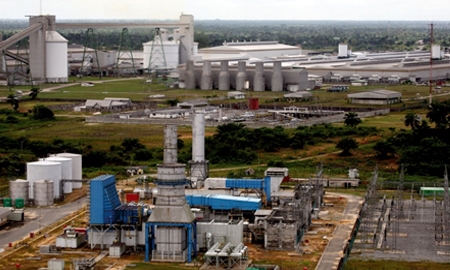
Nigeria’s electrical supply sector has seen major changes since the introduction of the Energy Reform Act in 2005. The Act set the scene for ending the monopoly on power generation and distribution, by the Power Holding Company of Nigeria (PHCN). Since 2005, private and independent companies have been assisting the Nigerian government to improve the country’s utility services.
One of the first Independent Power Plants (IPPs) to be constructed in Nigeria was the Ibom Power Plant. With assistance from national and international consultancy and construction companies, the plant was commissioned in 2009. Although the world-class plant currently generates an average of 60MW of electricity, its capability is much higher, at around 190MW.
However, the Ibom plant faces two problems. The first one is related to distribution of the power that it generates. Constrained by the inadequacy of existing transmission facilities, from the legacy PHCN organisation, the Ibom plant can only evacuate about one third of its potential output.
The other problem facing the power plant is the gas supplied by the Nigerian Gas Company (NGC). Often sporadic in terms of quantity, the specification of gas does not meet the standard demanded by the generating company.
To help improve the infrastructure of transmission lines and distribution networks, the Nigerian government is encouraging external investment from national and international private companies.
Chairman of the Ibom Power Plant until last year, Nsima Ekere says, “Power is like the tonic that will change not just our economic development but even the social development of the country.
“There are a lot of opportunities for investors and businessmen in the power sector. Presently we are going through a process of privatising the distribution arm of the business. The 11 distribution companies, the subsidiary companies of PHCN, are up for grabs and I think that is a huge opportunity.
“There are also opportunities in power generation. The total capacity in this country today is still less than 4,000MW. I think as a country we need well over 100,000MW so there are still a lot of opportunities in the generation arm of the business. The sky is the limit for serious investors in the power sector in Nigeria.”
The Nigerian government recognises that acute shortages of electricity exist throughout the country. In 2010, President Goodluck Jonathan announced plans to break up the state power company and sell it off as 11 distribution and six generation companies, in the hope that private and independent operation of the systems will bring better quality and efficiency. He has promised, with the help from external companies and investors, a marked improvement in power output in the years ahead.
0 COMMENTS